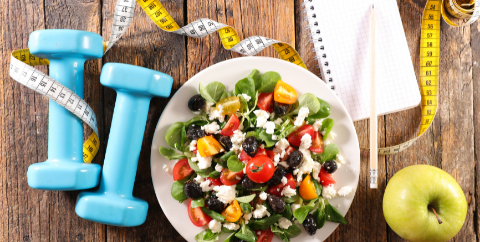February is Cancer Prevention Month: Take Action for a Healthier Future
02 February, 2025
Every February, Cancer Prevention Month serves as a powerful reminder that many cancers are preventable through lifestyle choices, early detection, and awareness. With cancer being one of the leading causes of death worldwide, taking proactive steps to reduce risk is more important than ever.
Data shows that about 40% of new cancer cases among adults aged 30 and older in the U.S. can be linked to modifiable—preventable—risk factors. With more than 2 million new cases of cancer estimated to be diagnosed in 2025, that means some of the more than 800,000 could potentially be prevented through lifestyle modifications and addressing known risk factors.
Understanding Cancer Risk Factors
Cancer develops due to a combination of genetic, environmental, and lifestyle factors. While some risk factors, such as family history, are beyond our control, others can be managed through informed decisions. The following key areas play a significant role in prevention:
1. Quit Tobacco Use
Tobacco use is the leading cause of preventable cancer, responsible for approximately 30% of all cancer deaths. Smoking, chewing tobacco, and exposure to secondhand smoke increase the risk of 13 different cancers including lung, throat, mouth, and colon cancers, among others. Quitting tobacco is one of the most impactful ways to lower cancer risk. Help is available at 1-800-QUIT-NOW.
2. Adopt a Healthy Diet
A diet rich in fruits, vegetables, whole grains, and lean proteins can support overall health and reduce cancer risk. Processed and red meats, excessive sugar, and alcohol consumption have been linked to higher cancer rates, and cancers such as colorectal and liver cancers. Opting for a balanced diet full of antioxidants and fiber can help combat cell damage and inflammation.
3. Stay Physically Active
Regular physical activity lowers the risk of several cancers, including breast and colon cancer. Aim for at least 150 minutes of moderate exercise or 75 minutes of vigorous activity per week. Exercise not only helps with weight management but also strengthens the immune system.
4. Limit Alcohol Consumption
Excessive alcohol intake has been associated with an increased risk of cancers such as liver, breast, and esophageal cancer. While the American Cancer Society’s recommendations have suggested limiting alcoholic drinks to no more than one a day for women and two a day for men, recent U.S. Surgeon General’s Report suggests those guidelines be revisited. If you can avoid alcohol, it’s a good idea to do so and seek alternative beverages.
5. Protect Your Skin
Skin cancer is the most common type of cancer in the U.S., but it is also one of the most preventable. Reduce your risk by using sunscreen (SPF 30 or higher), avoiding tanning beds, and wearing protective clothing when outdoors. Learn more about sun safety through our Sun Smart Nevada program.
6. Get Vaccinated
Certain viruses, like human papillomavirus (HPV) and hepatitis B, increase the risk of cancer. The HPV vaccine can prevent cervical, throat, penile, and other cancers, while the hepatitis B vaccine reduces the risk of liver cancer. Ensuring vaccinations are up to date is a crucial preventive step.
7. Schedule Regular Screenings
Early detection saves lives. Regular screenings for breast, cervical, colorectal, prostate, and lung cancers can detect issues before they become life-threatening. In the case of colonoscopy for colorectal screening and Pap tests for cervical screening, they can even prevent cancer! Speak with your doctor about which screenings are right for you based on age, gender, and family history.
8. Reduce Exposure to Carcinogens
Environmental factors such as air pollution, asbestos, and certain chemicals in household and workplace settings can contribute to cancer risk. Radon, which is an odorless, colorless gas, is a leading cause of lung cancer among non-smokers, yet many people are unaware of its dangers. Take steps to reduce exposure by using non-toxic household products, testing your home for radon, and following workplace safety guidelines.
What NCC is Doing in the Area of Cancer Prevention
Nevada Cancer Coalition is committed to advancing cancer prevention in our communities. Our Nevada Cancer Plan outlines objectives and strategies anyone can reference and take action on to improve prevention activities in the state. Through grant funding and with support from our partners, activities include:
Relaunching the HPV Cancer Free NV campaign. Through this work we’ve developed toolkits to assist physicians and dentists with discussing HPV vaccination with patients and their parents and establishing a vaccination program in their practices. The campaign also provides community education and vaccine promotion.
Supporting tobacco retailer compliance to ensure youth don’t have access to tobacco and vape products. This effort also includes community education on the harms of tobacco and support for tobacco cessation services.
Supporting the Nevada Radon Education Program in educating Nevadans about the risks of radon and the importance of testing homes and other buildings, and mitigating those with elevated levels detected.
Promoting sun safety in communities and schools through the Sun Smart Nevada and Sun Smart Schools programs. These programs teach the basics of sun safety, provide tools and resources for educators to add sun safety to their curriculum, and distribute sunscreen and shade structures to schools.
Take Action Today
Cancer Prevention Month is a call to action. Small, consistent changes can make a significant difference in lowering cancer risk and promoting overall well-being. Share this information with loved ones, advocate for policies that support public health, and take proactive steps toward a healthier future.
By making prevention a priority, we can reduce the burden of cancer and create a healthier world for generations to come.
You May Also Like

Yogurt May Help Prevent Colon Cancer
02.18.2025
A new study suggests that long-term yogurt consumption may help protect against aggressive colon cancer by promoting a healthy gut microbiome.

NCC Commits to 5-2-1-0 for Prevention
02.03.2025
The team at NCC is “walking the walk” with a commitment to practice prevention with the 5210 Healthy Washoe program.

Surgeon General: Time to Reduce Alcohol Consumption
01.09.2025
By now you have likely heard the news: The U.S.